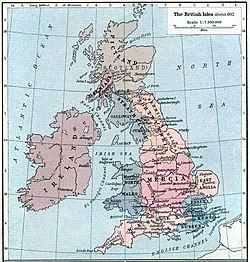| Reign | Incumbent | Style | Notes |
|---|
| 455–488 | Hengest | no charters | father of Oisc or Octa |
| 455 | Horsa | no charters | brother of Hengest |
| 488–512/516 | Oisc
(Œsc, Æsc, Ash, Oeric) | no charters | son of Hengest or Octa |
| 512/516–534/540 | Octa
(Octha) | no charters | son of Hengest |
| 534/540–c. 590 | Eormenric | no charters | father of Æðelberht I |
| c. 590 – 24 February 616 (Bede) | Æðelberht I | no genuine charters | first Christian King of Kent; father of Æthelburg, Queen Consort of Northumbria |
| February 616 – 20 January 640 (Bede) | Eadbald | no genuine charters | son of Æðelberht I |
| unknown | Æðelwald | no charters | contemporary with Pope Boniface V (619–625) |
| January 640 – 14 July 664 (Bede) | Eorcenberht | no charters | son of Eadbald |
| unknown | Eormenred | Irminredus | brother of Eorcenberht |
| July 664 – 4 July 673 (Bede) | Ecgberht I | no charters | son of Eorcenberht |
| acceded 674 or 675, d. 685 | Hlothhere | Lotharius rex Cantuariorum
Lotharius rex Cancie
Clotharius
Hlotharius | son of Eorcenberht; reigning jointly with Eadric |
| 685–686 (Bede) | Eadric | Eadricus rex Cantuariorum
Ædricus rex
Edricus | son of Ecgberht I; reigning jointly with Hlothhere |
| killed 687 | Mul | Mulo rege regnum Cantie | brother of Cædwalla, King of Wessex |
| acceded 687 or 688, still reigning 692 | Swæfheard | Suebhardus rex Cantuariorum
Sueaberdus rex Cantie | son of Sæbbi, King of Essex, reigning jointly in Kent with Oswine and Withred |
| fl. 689 | Swæfberht | Gabertus
Suebertus rex Cantuariorum | jointly with Oswine |
| fl. 689–690 | Oswine | Oswynus rex Cantie
Oswinus rex Cantuariorum | jointly with Swæfberht and Swæfheard |
| acceded c. 693, seven years after Edric's disposition (Malmesbury 1.15), died 23 April 725 | Wihtred | Wihtredus rex Cantie
Wythredus rex Cantuariorum
Wihtredus rex Cantuariorum | son of Ecgberht I; reigned jointly with Swæfheard |
| succeeded 725 | Alric | no charters | son of Wihtred; succeeded jointly with his brothers Æðelberht II and Eadberht I |
| 725–748 | Eadberht I | Eadbertus rex Cantuariorum terram dimidii
Ædbeortus rex Cantie | son of Wihtred; reigned jointly with his brothers Æðelberht II and Ælfric |
| Subject to Mercian overlordship |
| 725–762 | Æðelberht II | Æthilberhctus rex Cantie Athelbertus rex | son of Wihtred; reigned jointly with his brothers Eadberht I and Ælfric, and nephew Eardwulf |
| unknown | Eardwulf | Earduulfus rex Cantuariorum
Eardulfus rex Cantiae | son of Eadberht I; reigned jointly with Æðelberht II; contemporary with Archbishop Cuðbert (740–760) |
| fl. 762 | Eadberht II | Eadberht rex Cantiae
Ædbertus rex
Eadbertus rex Cantie | jointly with Sigered |
| fl. 762 | Sigered | Sigiraed rex Cantiae
Sigeredus rex dimidie partis prouincie Cantuariorum | jointly with Eadberht II |
| 762–764 | Eanmund | Eanmundus rex | contemporary with Archbishop Bregowine (761–764) |
| fl. 764–765 | Heaberht | Heaberhtus rex Cantie
Heaberhtus rex | jointly with Ecgberht II |
| fl. 765–779 | Ecgberht II | Ecgberhtus rex Cantie
Egcberhtus rex Cantiae
Egcberht rex Cantie
Egcberth rex Cantie
Egcberhtus rex | jointly with Heaberht |
| fl. 784 | Ealhmund | Ealmundus rex Canciæ | father of Ecgberht III |
| Under the direct rule of Offa of Mercia (785–796). |
| 796–798, deposed | Eadberht III Præn | no charters; coins: EADBEARHT REX | Deposed and mutilated by Cœnwulf |
| acceded 797 or 798, d. 807 | Cuðred | Cuthredus Rex Cantiae
Cuðred rex Cantiae
Cuðredus rex cantwariorum | brother of Cœnwulf and Ceolwulf |
| fl. 809 | Cœnwulf | Ceonulfus Christi gracia rex Merciorum atque provincie Cancie | brother of Cuðred and Ceolwulf; also King of Mercia (796–821) |
| fl. 822–823 | Ceolwulf | Ceolwulf rex Merciorum vel etiam Contwariorum
Ceolwulf rex Merciorum seu etiam Cantwariorum | brother of Cuðred and Cœnwulf; also King of Mercia (821–823) |
| deposed in 825 | Baldred | no charters; coins: BALDRED REX CANT | expelled by Æðelwulf in 825 |
| 825–839 | Ecgberht III | Ecgberht rex occidentalium Saxonum necnon et Cantuariorum | son of Ealhmund; reigned in Kent jointly with his son Æðelwulf; also King of Wessex (802–839) |
| 825–858 | Æðelwulf | Aetheluulf rex
Æðeluulf rex Cantrariorum
Æthelwolf gratia Dei rex Kanciae
Ætheluulf rex Cancie
Aeðeluulf Rex Cancie
Aetheluulf gratia Dei rex occidentalium Saxonum seu etiam Cantuuariorum
Aeðeluulf gratia Dei rex occidentalium Saxonum nec non 7 Cantuariorum
Eðelwulf rex occidentalium Saxonum nec non et Cantuariorum
Eðeluulfus rex Occidentalium Saxonum necnon et Cantuariorum
Æðelulf rex misericordia Dei occidentalium Saxonum; necnon & Cantuuariorum | jointly with his father Ecgberht III and son Æðelstan; also King of Wessex (839–856) |
| fl. 839–851 | Æðelstan I | Edelstan rex Kancie
Ethelstan Rex
Aeðelstan rex
Aedelstan rex | jointly with his father Æðelwulf |
| fl. 855–866 | Æðelberht III | Aeðelberht rex
Eþelbearht rex
Eðelbearht rex
Æthelbertus occidentalium Saxonum necnon et Cantuariorum rex
Aeðelbearht rex Occidentalium Saxonum seu Cantuuariorum
Aeðælberht rex Occidentalium Saxonum seu Cantuariorum
Eðelbearht rex occidentalium Saxonum nec non et Cantuariorum | jointly with his father Æðelwulf; also King of Wessex (860–866) |
| 866–871 | Æðelred I | Eðelred rex occidentalium Saxonum . non et Cantwariorum
Aeðered rex Occidentalium Saxonum necnon et Cantuariorum | son of Æðelwulf; also King of Wessex (866–871) |
